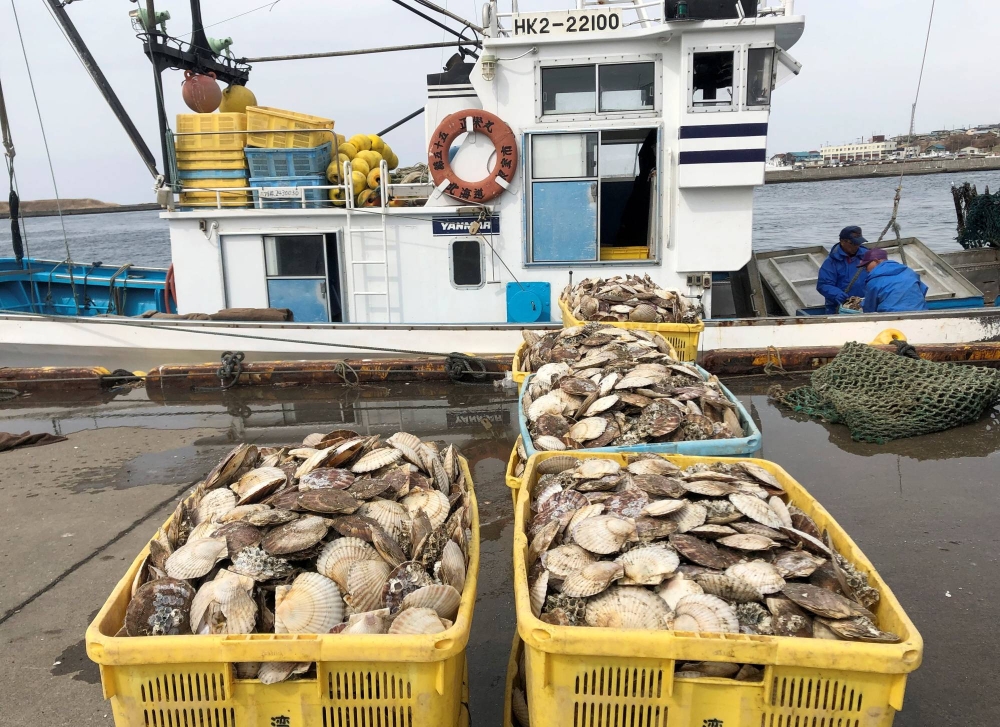The Japan External Trade Organization will launch a pilot project next year to process Japanese scallops in Mexico and export them to the United States, people familiar with the matter told Jiji Press on Tuesday.
JETRO aims to help expand consumption of Japanese scallops in the United States amid China’s ban on fishery products from Japan imposed over the release into the ocean of tritium-containing treated water from the crippled Fukushima No. 1 nuclear power plant.
Under the plan, Japanese scallops will be processed in Ensenada in the Mexican state of Baja California, about 100 kilometers from the border with the United States, starting in February.
Specifically, frozen scallops from Hokkaido will be sent to seafood processors in Ensenada, get their shells removed and undergo inspections to check they are fresh and hygienic.
JETRO also plans to hold a business meeting for U.S. distributors in Los Angeles in March, at which it will highlight the positive points of scallops processed in Mexico in an effort to boost consumption in North America.
The project will be funded by the Japanese government as part of a program aimed at addressing reputational damage incurred by Japanese fishery products due to the treated water release.
In 2022, Japan’s scallop exports totaled ¥91.1 billion, about half of which was for China, according to the Japanese agriculture ministry. Many Japanese frozen scallop adductors processed in China had been exported to the United States.

